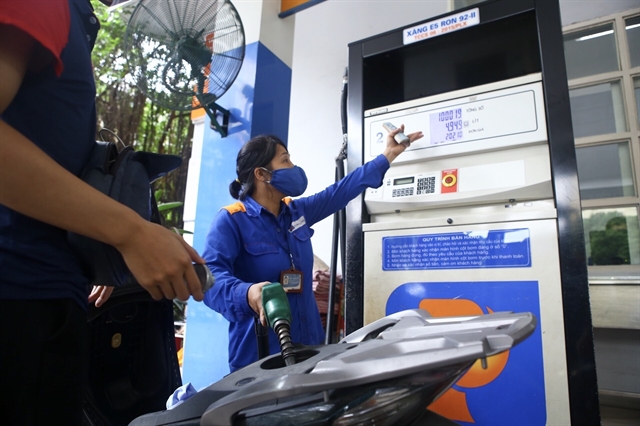Credit growth of the banking system in the first two months of this year reached only 0.06 per cent, slowing significantly against the 1 per cent rate in the same period last year, due to adverse impacts of the COVID-19 epidemic.

Credit growth of the banking system in the first two months of this year reached only 0.06 per cent, slowing significantly against the 1 per cent rate in the same period last year, due to adverse impacts of the COVID-19 epidemic, the State Bank of Viet Nam (SBV) reported.
Compared with the end of last year, credit even inched down 0.18 per cent.
According to Nguyen Quoc Hung, director of the SBV’s Credit Department, the low rate showed that local enterprises had been facing major difficulties because of the disease and had to shrink business and production.
"Except for a number of industries, whose domestic raw materials are still available for normal business and production activities, enterprises in import and export, tourism, agriculture and transportation, especially aviation, have been facing big challenges," Hung noted.
Many commercial banks also reported many businesses had been narrowing their production and business activities, so there was no demand for loans.
In fact, they said, only some public investment projects and a minority of enterprises, which produce goods for the domestic market, borrowed capital to invest, while most businesses that need raw material sources imported from China had production and business interrupted by the disease.
Le Duc Tho, chairman of VietinBank, said loans of COVID-19-affected enterprises at his bank currently accounted for some 11 per cent of the bank’s total outstanding loans. However, the ratio could rise as the disease was still impacting the economy.
Besides restructuring loan repayments, VietinBank staff were also working with each borrower to find out their difficulties so as to take more effective supporting measures, Tho said.
“Some borrowers might lose their main export markets and have to seek alternatives, while some others might have to find new raw material sources or change business strategies,” Tho noted.
As there is no prediction about when COVID-19 will be controlled, while Viet Nam’s many major trading partners, such as the EU, South Korea, the US and Japan are seeing outbreaks, banks said exports of many borrowers had been affected, which had also put a strain on their solvency.
Banks therefore also urged the central bank to rapidly issue a circular guiding them to restructure loan repayments, exempt and reduce interest rates, explaining that a lack of detailed regulations could cause risks for banks.
According to the SBV, 23 credit institutions have so far reported to the central bank that some VND926 trillion (US$40.26 billion) in outstanding loans belonged to borrowers affected by COVID-19, accounting for 11.3 per cent of the total outstanding loans of the entire banking system.
Despite efforts from banks, banking expert Can Van Luc forecast credit growth would struggle in the near future. — VNS





